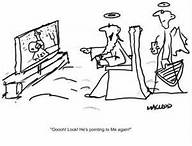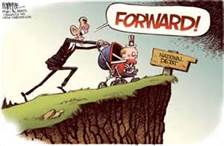 A recent poll suggests that 27% of US citizens believe that god plays a role in the outcome of a sporting event.
A recent poll suggests that 27% of US citizens believe that god plays a role in the outcome of a sporting event.
Another poll suggests that 77% of people believe prayer works in general.
The question I am going to ask about these statistics might not be the one you think.
So, here’s my question for the apparent 50% of people who believe prayer works but don’t believe that god helps win or lose a football game. Why not? If you believe that praying to god will cause god to change one thing, then why not believe god would change a sporting event’s outcome?
For the record, I want to be clear here, if you believe prayer works then you believe that god is fallible. That the master plan for your life changes as you pray. That the original plan of god got changed. If you believe god is infallible then prayer must be useless. The plan is at it was and cannot change. No amount of prayer can alter the course of the plan. But, getting away from logic for a moment I want to examine the psychology of those 50%.
I think the reason for the disparity in those who believe prayer works and those who believe prayer works for sporting events is quite simple. If god is willing to alter something as simple as a sporting event then god is capricious. God is willing to cause someone to lose a largely meaningless game because the other side prayed more earnestly. This makes god petty. That’s why most people who believe in the power of prayer don’t believe that it changes sporting events. Does god changes the outcome of the kickball game at recess? Where does it end? Those who believe in the power of prayer at some point realize it’s a ridiculous proposition and bail.
I believe in prayer they say, but not for silly things. God is above that.
If god is watching and making countless changes to the master plan at all times, saving a life here, ending a life there, picking which children in Sandy Hook to live, then god is a capricious prick. I want no part of such a god. If that god were to come to me right now and say, ‘I am God, worship me’. I would say no, never.
There is one other possibility and the most rational of my religious friends argue it. That god doesn’t alter the master plan for a prayer. That people pray to make themselves and others feel better about the troubles they are suffering. Prayer is merely a conduit of hope. To that I say, dispense with the prayer and get on with the hope. Don’t pray for my sister to fully recover from breast cancer, tell me that you hope she does, that you are thinking of her, that you care for me as a friend, and for her by extension.
I’m not militant about this. When friends tell me they are praying for a loved one I say, ‘thank you. That’s kind of you’. I know they are praying because they think it will help. That’s their business. Go on praying, just be aware of the logic behind your prayer. If you believe prayer works on any level you must believe it works at every level, even sporting events.
Tom Liberman
Sword and Sorcery fantasy with a Libertarian Twist
Current Release: The Sword of Water
Next Release: The Spear of the Hunt









